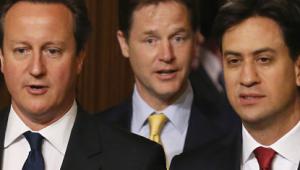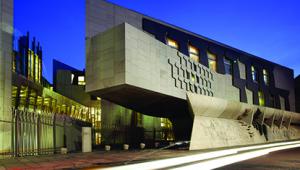By Keith Aitken in Edinburgh | 22 September 2014
The promise by pro-union parties to devolve new tax powers to Holyrood were mired in confusion and doubt over the weekend, prompting First Minister Alex Salmond to claim that Scottish voters were tricked into voting No at last Thursday’s independence referendum.
Salmond, who is stepping down following the 55-45% vote to stay in the UK, also raised the prospect in a weekend interview that Scotland could achieve independence without a further referendum.
‘There is a parliamentary route where people can make their voice heard as well,’ he said. ‘So a referendum is only one of a number of routes.’
His comments reflected widespread anger among Yes supporters as rips swiftly appeared in the cross-party consensus stitched together by former prime minister Gordon Brown to persuade voters that significant new fiscal powers would come to Holyrood if they voted No.
Central to the offer was Brown’s timetable for implementation. This would see draft legislation in place by January, ready for enactment after the UK general election in May, even though there is as yet no agreement between the unionist parties as to what exactly the new powers should be.
Prime Minister David Cameron’s insistence in a statement last Friday on linking the Scottish measure to major parliamentary reforms in respect of England – in response to growing unrest among English Conservative backbenchers – had thrown this schedule into serious doubt.
However, Downing St has subsequently stressed that the further devolution of powers to Scotland is not contingent on progress regarding English matters.
‘There was an unambiguous commitment by the party leaders to deliver more devolution to Scotland on a clear timetable. That is not conditional on anything else. No ifs, no buts – that will occur,’ a government sourced quoted in The Guardian said.
The Conservatives want to resolve the so-called West Lothian Question – the right of Scottish MPs to vote on measures that don’t apply to Scotland – as part of a comprehensive constitutional package. They want Commons votes on England-only matters to be restricted to MPs representing English constituencies: in effect, an English parliament within the UK Parliament.
But that idea is anathema to Labour, ostensibly on the grounds that it would create two classes of MP, but also because it could well mean that Labour could win a UK general election and yet find itself unable to command a majority on the bulk of Commons business if its Scottish and Welsh MPs were forced to sit on their hands.
Confusion over implementation of the Brown has done little to heal referendum divisions in Scotland, despite a service of reconciliation in Edinburgh yesterday involving leaders of all the main Scottish parties.
Salmond predicted that anger in Scotland would be greatest among No voters. ‘The wrath of Khan will be as of nothing to the wrath of a No voter who has been gulled by the Westminster leadership.’ He suggested that another big majority for the Scottish National Party at the 2016 Holyrood election might open up an alternative route to independence.
But Salmond was accused by Scottish Labour leader Johann Lamont of seeking to perpetuate the referendum divisions in Scotland.‘His words are fundamentally undemocratic and an insult to the people of Scotland,’ she said.
Cameron is hosting a summit meeting today of top Tories at Chequers to discuss his plans. Among those pressurising him are London Mayor Boris Johnston, who said over the weekend. ‘What is sauce for the goose [on devolution] has also got to be sauce for the gander.’





















